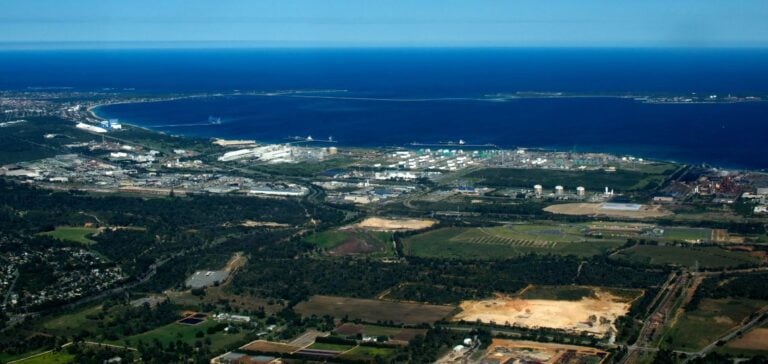In Australia, BP has reached a significant milestone in energy transition with the approval of its plan to transform the Kwinana industrial site into a renewable fuels hub. This AUD 580 million investment, granted by the Department of Planning, Lands, and Heritage of Western Australia, aims to replace the former refinery with a biorefinery dedicated to producing sustainable fuels for energy-intensive industries.
The Kwinana site, which ceased its refining operations to become an import facility in 2021, spans 250 hectares. This transformation aims to turn the industrial area into an energy hub capable of supplying renewable fuels to both Australian and international markets. BP plans to repurpose part of the existing infrastructure, such as processing units and storage tanks, to limit installation costs and optimize resource use.
Planned production: Sustainable aviation fuel and hydrotreated vegetable oil
The Kwinana biorefinery will focus on producing sustainable aviation fuel (SAF) as well as hydrotreated vegetable oil (HVO). These products will be derived from renewable sources, including both local and imported feedstocks, such as canola oil. This project aligns with BP’s strategy to develop a sustainable energy center, integrating green fuel production and green hydrogen initiatives.
Reducing carbon footprint in industrial sectors
The new energy hub aims to contribute to the decarbonization of hard-to-abate sectors such as aviation and industries that rely on heavy diesel engines. By focusing on low-carbon liquid fuels, BP hopes to significantly reduce the carbon footprint of these sectors. This transition towards more sustainable fuels aligns with BP’s sustainability commitments and its active role in global energy transition efforts.
BP also advocates for government incentives, particularly in the form of a production tax credit, to encourage investment in renewable fuel production within Australia. The goal is to enable the country to compete internationally in the low-carbon liquid fuels (LCLF) sector.
Prospects for the Kwinana biorefinery
Production at the biorefinery is expected to begin between 2026 and 2027, using a 10-hectare area of the site. Among the new facilities, BP will introduce a feedstock pre-treatment unit, a hydrogen generation unit, a product fractionation unit, a by-product recovery unit, and a truck unloading facility. By reusing pre-existing infrastructure, BP intends to reduce installation costs and maximize operational efficiency while minimizing environmental impact.
According to recent estimates from S&P Global Commodity Insights, renewable diesel production costs in Southeast Asia, particularly those using palm fatty acid distillate, are currently around USD 1,790 per metric ton, up slightly from previous assessments. This fluctuation underscores the volatility of costs in the renewable fuels sector, reinforcing the importance of local production in Australia to better stabilize supplies and costs.






















